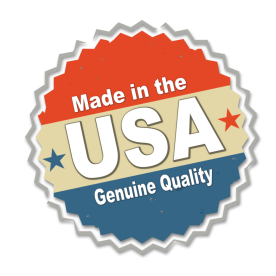On September 26, 2019, the Federal Trade Commission (FTC) hosted a public workshop on "Made in USA" (MIU) and other U.S. origin claims. The FTC designed the workshop to obtain input on how consumers perceive such claims and to seek stakeholder feedback on whether changes to the FTC's existing policy and enforcement program are needed. As one FTC official put it, "all ideas are on the table." Keller and Heckman attended; below is a brief background and summary of the workshop.
Background
The FTC's authority to regulate U.S. origin claims derives from Section 5 of the Federal Trade Commission Act (FTC Act), which prohibits "unfair or deceptive acts or practices" in commerce. The FTC's Enforcement Policy Statement on U.S. Origin Claims (Enforcement Policy), published in 1997, sets forth the Commission's enforcement policy regarding the use of U.S. origin claims in advertising and labeling. Like the FTC's Guides for the Use of Environmental Marketing Claims, the U.S. Origin Enforcement Policy is not a rule, but it outlines how the FTC approaches "Made in USA" and related claims from an enforcement perspective. Under the Enforcement Policy, companies making voluntary, unqualified U.S. origin claims must substantiate them with evidence that "all or virtually all" of the product is made in the U.S. To be advertised as "Made in the USA," products can only contain a de minimis amount of foreign content. The Policy also covers qualified U.S. origin claims, such as "Made in USA from imported parts" or "60% U.S. Content."
Workshop Summary
Julia Solomon Ensor, an attorney for the Bureau of Consumer Protection, reviewed the legal framework underlying "Made in USA" claims, including the FTC's enforcement efforts to ensure compliance with the Enforcement Policy. Shiva Koohi, Bureau of Economics, offered an analysis of consumer perception data on U.S. origin claims. Discussion panels featuring manufacturers, retailers, other industry representatives and consumer groups followed the presentations. Topics included: (1) consumer perception of "Made in USA" and other U.S. origin claims; (2) the utility of FTC's current enforcement policy; and (3) whether any changes should be made to FTC's enforcement strategy.
Consumer Perception
The FTC's policy and enforcement positions on U.S. origin claims are grounded in the Commission's view of how consumers perceive such claims. The FTC is seeking comment on a number of questions related to interpretation and perception of claims, which are included in the workshop announcement. Workshop panelists offered various insights into consumer understanding of U.S. origin claims. According to a representative from Consumer Reports, eight out of ten Americans prefer to buy a product if it is made in the USA. A representative from the Alliance for American Manufacturing noted that when buying a product made in the USA, consumers: (1) expect better quality; (2) buy these products to support American jobs; and (3) expect to pay a premium. A representative from Walmart confirmed that U.S. origin claims resonate with consumers who want to support American jobs.
Enforcement Policy
The FTC's Enforcement Policy has been in effect since 1997 without amendment. Workshop participants were divided on the value of the Enforcement Policy and the need for revisions.
- Unqualified claims: Workshop panelists offered differing positions on the "all or virtually all" standard for unqualified claims. A representative from the Alliance for American Manufacturing stressed the importance of maintaining the "all or virtually all" standard which has been in effect since before the 1997 Enforcement Policy. In contrast, a representative from the American Apparel & Footwear Association argued that the Enforcement Policy needs more clarity as it fails to clearly define when a product is "all or virtually all" made in the U.S. or not.
- Qualified claims: Workshop panelists were also divided on the utility of qualified claims. For example, a representative from Richline Group, Inc. stated that given their weakness and complexity, qualified claims can be nonstarters for marketers, while a representative from TruthInAdvertising.org stressed that consumers value more information on products.
Ultimately, FTC officials stressed the importance of developing data on differences in consumer perception between unqualified and qualified claims to better inform any potential changes to the Enforcement Policy.
Enforcement Strategy
FTC staffers explained that to ensure compliance with its Enforcement Policy, the FTC offers informal business counseling to companies who seek input prior to marketing a product with a MIU claim. The FTC's list of closing letters shows that many companies seek and respond to FTC advice. But the FTC also initiates enforcement action for violations. Most recently, the FTC entered into a consent agreement with Patriot Puck and Sandpiper and Piper Gear over unsupported MIU claims, as we previously reported.
Workshop panelists generally agreed that staff counseling is a valuable compliance measure, but several participants suggested that by pursuing only a handful of cases each year, the FTC is not challenging many unsubstantiated claims and the Commission should do more. Moving forward, FTC officials requested comment on the following two ideas to bolster its enforcement powers:
- Altering its litigation strategy to increase remedies sought and/or seek admissions in consent agreements.
- Initiating a rulemaking to replace the existing Enforcement Policy governing "Made in USA" claims with a formal rule that allows the FTC to seek civil penalties in addition to equitable relief.
Next Steps
Importantly, whether the FTC revises its Enforcement Policy or initiates a rulemaking, input from product manufacturers will be essential to any proposed change by the FTC. Interested parties can submit comments to the FTC here through October 11, 2019.




 i
i


